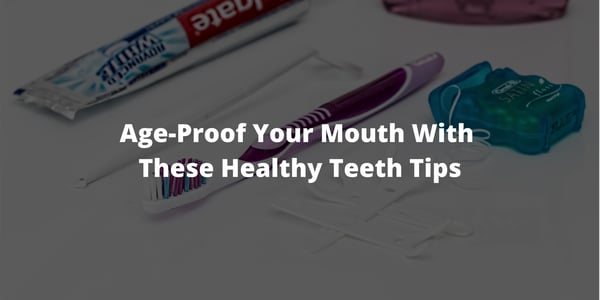The summer heat can be relentless, leaving us feeling drained, lethargic, and longing for relief....
How to Take Care of Your Heart Health: 7 Tips
Your heart is a vitally important organ. It continuously pumps blood throughout your body to ensure that your living tissues get the nutrients and oxygen that they need. While all of your organs are important in their own ways, the heart is arguably the king of the organs: if it stops working, so does everything else. Given that fact, it's essential to take care of your heart! In addition, good heart health reduces the risk of heart attack and leads to a healthier body in general, so it is critical to take care of it. Here are some tips to take care of your heart at any age.
Take Care of Your Heart Health with the Following Tips
-
Eat a Heart-Healthy Diet
The old saying "you are what you eat" is true. Your body uses what you feed it to make new cells and fuel the vital processes of life. Unfortunately, an unhealthy diet can lead to a host of health problems, including heart attacks. However, it's not too difficult to follow the guidelines of a heart-healthy diet:
-
Limit Portion Sizes - Overeating can cause obesity, which strains your heart. Eating appropriate portion sizes helps you control your waistline and can help reduce your risk of heart disease.
-
Avoid Fast Food - Fast food is usually high in calories and high in sodium, which can increase your risk of obesity and high blood pressure (hypertension).
-
 Eat More Fruits and Vegetables - These foods are high in fiber and low in calories, plus they're a rich source of other vital nutrients!
Eat More Fruits and Vegetables - These foods are high in fiber and low in calories, plus they're a rich source of other vital nutrients! -
Eat Whole-Grain Foods - Instead of refined foods, brown rice, whole-grain bread, and steel-cut oatmeal are excellent sources of fiber — plus, they are rich and flavorful.
-
Avoid Saturated and Trans Fats - These fats, commonly found in foods such as butter, heavy cream, gravy, bacon, and coconut oil, are bad for your blood vessels. Instead, choose fats like olive oil, nuts, and avocados.
Does this all sound daunting? That's understandable, but don't panic. There are plenty of delicious heart-healthy recipes available for free online!
-
-
Quit Smoking
Do you smoke? You should stop immediately. Smoking cigarettes is one of the most significant risk factors for heart disease. In simple terms, that means that you are much more likely to have a heart attack or stroke or to develop heart disease if you smoke.
Smoking tobacco can affect the ratio of lipids in your blood in a way that raises your risk of having a heart attack. It also increases the risk of dangerous blood clots and plaque in your blood vessels, which can directly lead to heart attack or stroke. Plus, smoking is incredibly bad for your lungs and increases your risk of other unpleasant lifelong diseases such as COPD.
Click here to learn about tips to break bad habits like smoking! -
Exercise
 It's easy to be a couch potato. Our mobile devices and TVs are an endless source of entertainment, and the sofa is so very comfortable. But being a couch potato can seriously affect your heart health. One of the best things you can do to take care of your heart health is to exercise!
It's easy to be a couch potato. Our mobile devices and TVs are an endless source of entertainment, and the sofa is so very comfortable. But being a couch potato can seriously affect your heart health. One of the best things you can do to take care of your heart health is to exercise!Exercise doesn't have to be crazy difficult to be effective. Even simple forms of exercise like walking, riding a bike, playing tennis, and swimming are great ways to get your heart pumping and improve your overall health. Using weight machines, dumbbells, free weights, or body-resistance exercises like push-ups can also help improve your heart health.
-
Limit Alcohol
Many of us enjoy a beer or a glass of wine now and then. Heck, sometimes a nice margarita on Taco Tuesday really hits the spot. But drinking too much alcohol is not good for your heart. Excessive alcohol consumption is harmful to many systems of the body. It can affect your heart by raising your blood pressure and increasing caloric intake. In general, men should have two or fewer drinks a day, and women should have no more than one. And remember: a standard serving of alcohol is 12 ounces of beer, 5 ounces of wine, or 1.5 ounces of liquor.
-
Get Enough Sleep
We Americans love to boast about how busy we are and how little we sleep, but this is a toxic trait. Sleep is super important for your physical and mental health, and it is crucial for your heart health. Not getting enough sleep raises your risk of high blood pressure, obesity, and diabetes, which are all significant risk factors for heart disease. In general, adults need between 7 and 9 hours of sleep every day. Learning to engage in healthy sleep habits at any age can help keep your heart healthy.
-
Manage Stress
Stress can impact your heart health. Stress releases a cascade of hormones such as Cortisol that can make your body go haywire. As a result, your blood sugar may spike, your blood pressure may rise, and long-term stress can increase the risk of health problems like anxiety and depression. Stress is a significant factor in causing heart disease and can even trigger a heart attack. Learn to manage stress through exercise, yoga, pilates, meditation, prayer, or even journaling.
-
See a Doctor
 In this day and age, everybody fancies themselves an expert. However, the truth is, no amount of watching YouTube videos, looking at memes on Facebook, or reading articles on WebMD will beat the expert opinion of a licensed and credentialed medical doctor. Think about it: would you get on an airliner piloted by a guy who learned how to fly on YouTube? Then why would you take medical advice from some random person on Facebook?
In this day and age, everybody fancies themselves an expert. However, the truth is, no amount of watching YouTube videos, looking at memes on Facebook, or reading articles on WebMD will beat the expert opinion of a licensed and credentialed medical doctor. Think about it: would you get on an airliner piloted by a guy who learned how to fly on YouTube? Then why would you take medical advice from some random person on Facebook?Instead, you should find a doctor with an MD or DO behind their name. While chiropractors, naturopaths, and other alternative medicine providers can be helpful for supplemental healthcare, you should rely on an actual physician for medical advice. Your primary care doctor will know about your specific medical history and will be able to help you find ways of keeping your heart healthy that will be safe and effective.
The Heart of the Matter
Our hearts are absolutely amazing. These little fist-sized blood pumps beat on for our entire lives, keeping us nourished and alive. Taking care of your heart health is essential for longevity and quality of life. Following the simple tips we outlined here and taking the advice of a trained doctor will help you keep your heart in top shape! 





